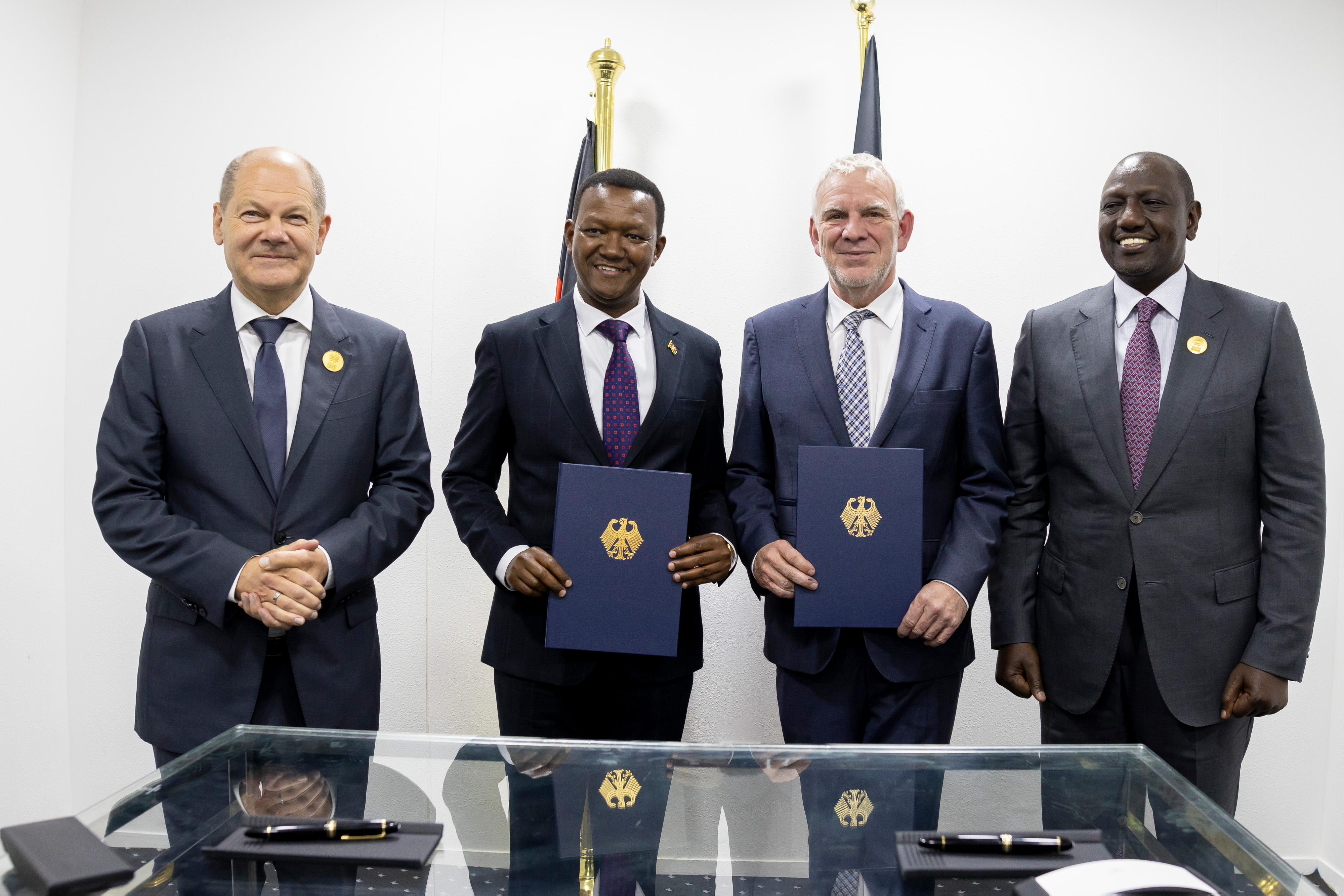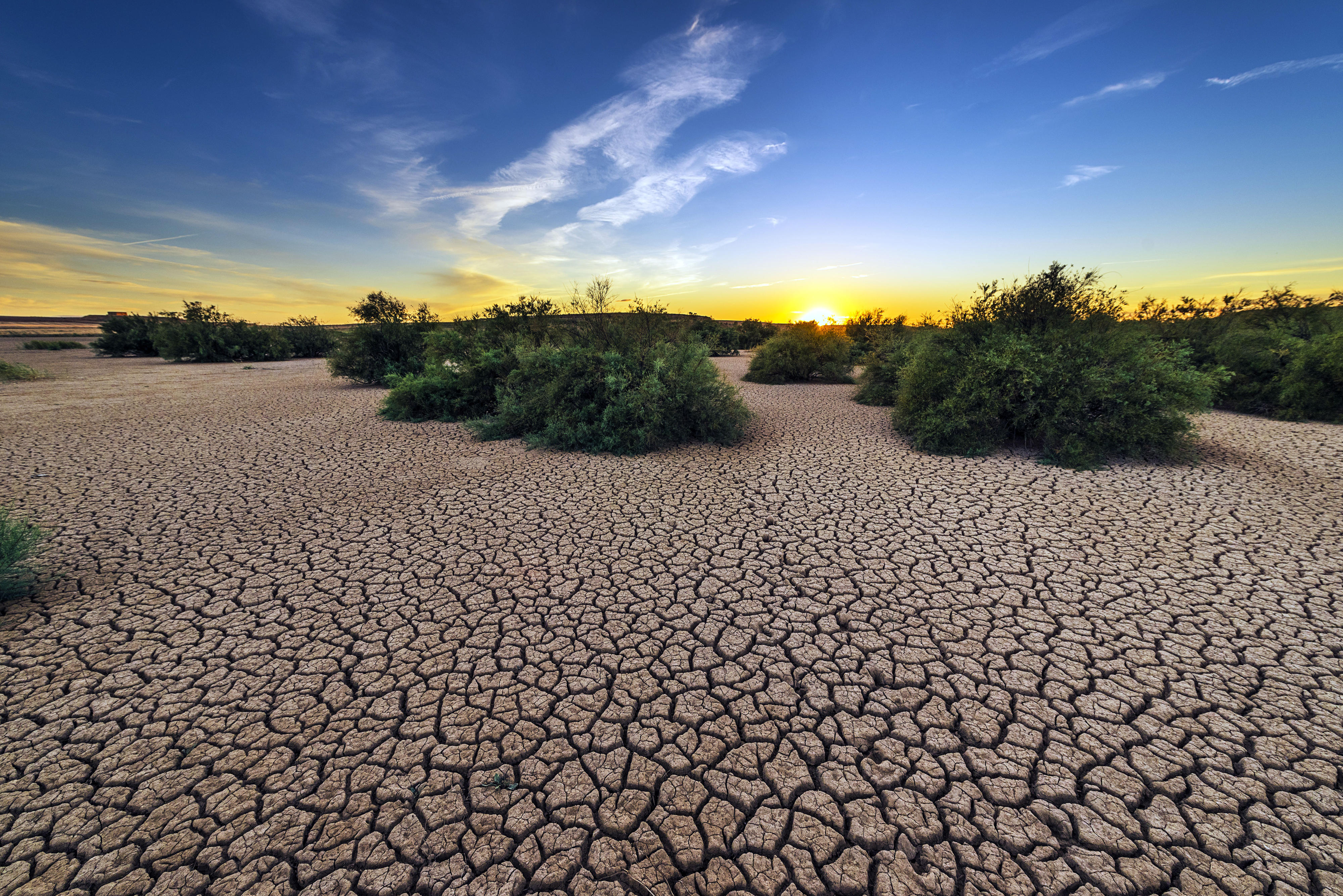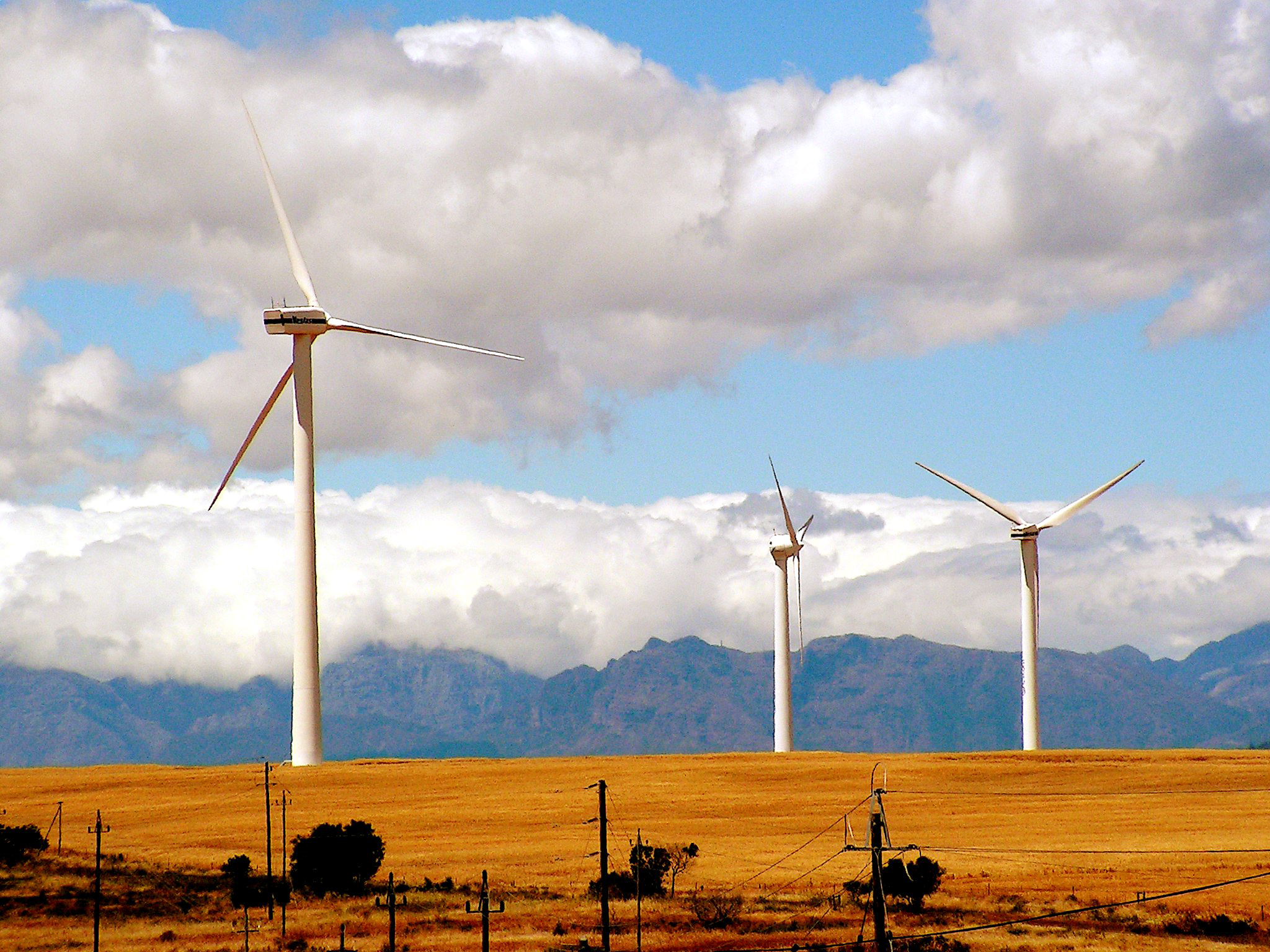COP27 Germany and Kenya agree Climate and Development Partnership
Press release 8 November 2022 | Germany and Kenya want to agree a Climate and Development Partnership. Jochen Flasbarth, State Secretary in the Federal Ministry of Economic Cooperation and Development, today signed a roadmap in this regard with Kenya’s Foreign Minister Alfred Mutua in the presence of German Chancellor Olaf Scholz and President William Ruto at COP27 in Sharm el-Sheikh.
With its share of renewable energy already exceeding 90 per cent, Kenya is a frontrunner in the region. It wants to increase the share of renewables to 100 per cent by 2030 – alongside growing demand because of economic growth, electric mobility and, in the longer term, production of green hydrogen. Germany is supporting Kenya in its efforts to achieve this goal.
Development Minister Svenja Schulze said: “Kenya can lead the way in Africa and even beyond Africa. If it succeeds in generating its energy from 100 per cent renewable sources that would be a strong message that would also encourage others. We want to support these efforts. In addition, adaptation to climate change also is an important part of our cooperation. Because Kenya is massively affected by the climate crisis; and the consequences for agriculture and food security are severe.”
The Climate and Development Partnership builds on the long-standing development cooperation in the area of energy and climate. Germany is supporting efforts to expand renewable energies such as geothermal power and the modernisation of the power grid as part of a fully renewable energy system. This is supplemented by the development of electric mobility and of a green hydrogen economy. This will benefit for instance domestic fertiliser production because the industry will no longer depend on expensive fossil gas. With the help of such locally produced fertilisers and a more climate-resilient agriculture food security in the Horn of Africa can then also be strengthened. After the drought in the north of the country, with five rainy seasons having failed and the increase in food and fertiliser prices because of Russia’s war of aggression, more than 4 million people are currently threatened by hunger.
Adaptation to climate change will be an additional priority area of the new partnership. The Kenyan government wants to restore degraded forest land. Some 30 per cent of the country’s surface area are to be covered with trees by 2032. Germany is committed to supporting efforts in the areas of sustainable land management and forestry, and soil-conserving agricultural methods for climate adaptation and food security.
The upcoming government negotiations on development cooperation with Kenya in December will be used to agree further details of the partnership and set out the funding.
Climate and Development Partnerships are a key development policy instrument of the German government and an important lever for the implementation of the Paris Agreement. A core element is that the ambitious climate goals are implemented in a way that is socially fair.



